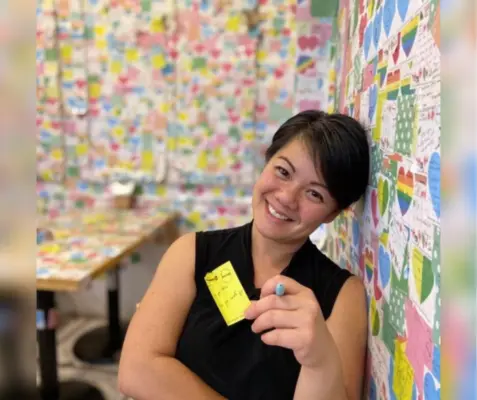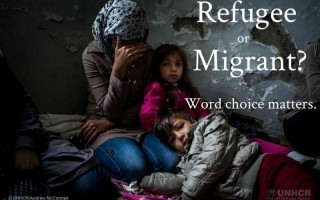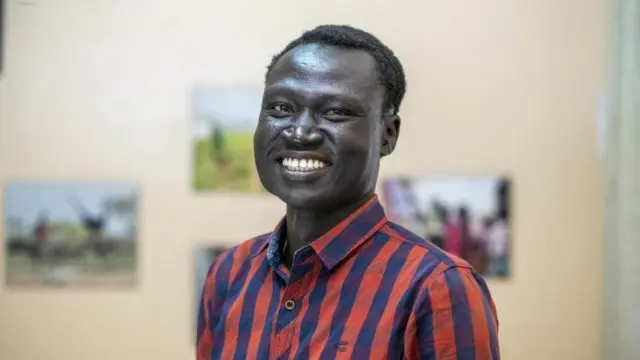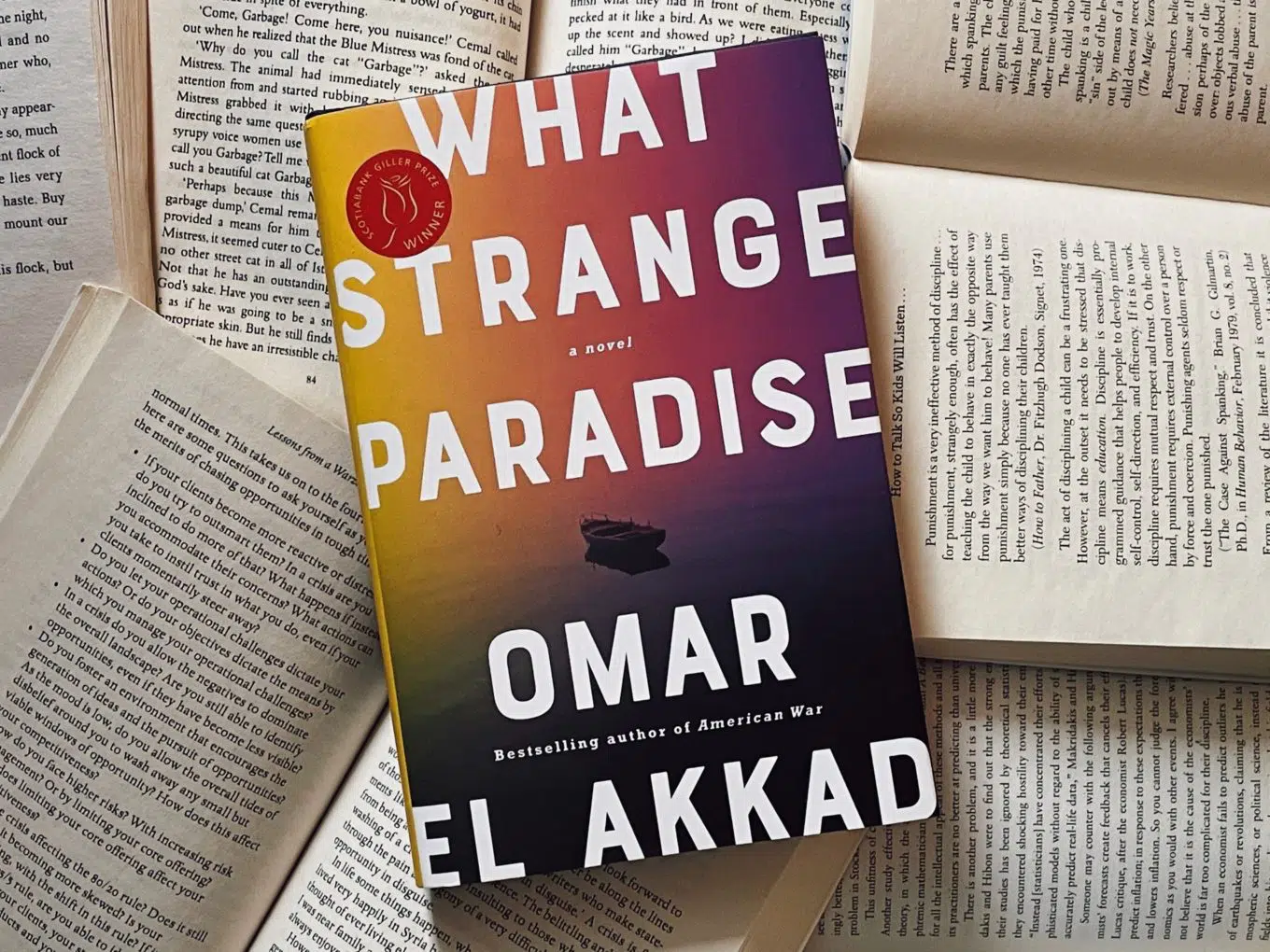
Omar El Akkad’s novel What Strange Paradise has won the 2021 Scotiabank Giller Prize, one of the most prominent Canadian literary prizes. © Yasmine Saker
Award-winning novelist and journalist highlights the plight of refugee children on their dangerous journeys fleeing conflict
By Yasmine Saker
Children washed up ashore surrounded by wreckage; dozens of people huddled together on small boats; families living in tents in dire conditions; hundreds of people stranded on borders behind barbed wire. These chilling images of refugees and displaced persons have become a daily occurrence as an unprecedented 82.4 million people around the world, including over 34 million children, have been forced to flee their homes.
In his novel What Strange Paradise, award-winning Canadian author and journalist Omar El Akkad recreates these images while following Amir, a nine-year-old Syrian boy who is the only survivor of a shipwreck off a small Greek island.
“Many tragic images were seared into my head as I was writing What Strange Paradise,” says El Akkad. “Alan Kurdi, the three-year-old Syrian toddler found washed up on a Turkish beach, lying face-down was one of them.”
“Every time we would see one of these heartbreaking images, people would be outraged for a day or two, before they move on to the next incident, and it made me furious.”
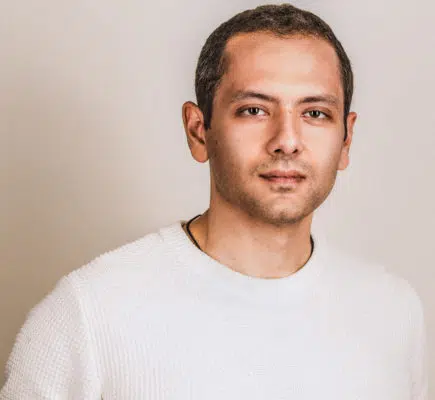
Omar El Akkad is an author and journalist. © Kateshia Pendergrass
Another image that moved El Akkad is one of a Salvadorian man and his two-year-old daughter lying face down, having drowned at the U.S.- Mexico border on their journey to escape violence and poverty.
“Every time we would see one of these heartbreaking images, people would be outraged for a day or two, before they move on to the next incident, and it made me furious,” says El Akkad on his inspiration to write What Strange Paradise.
“But a novel is the opposite of that; it forces you to not look away. For as long as you’re reading the book, you don’t have the privilege of looking away.”
On the island, Amir finds himself alone in a foreign land, trying to escape danger at every turn. He meets Vanna, a teenager living on the island, who is determined to keep him safe despite the two not sharing a language or a culture.
Just like Amir, thousands of refugee and migrant children are forced to make the arduous and dangerous journey to safety alone. Others become separated from their families along the way, leaving them unaccompanied.
“While Amir is a fictional character, the challenges he faces are being encountered daily by real children fleeing their homes around the world,” he adds.
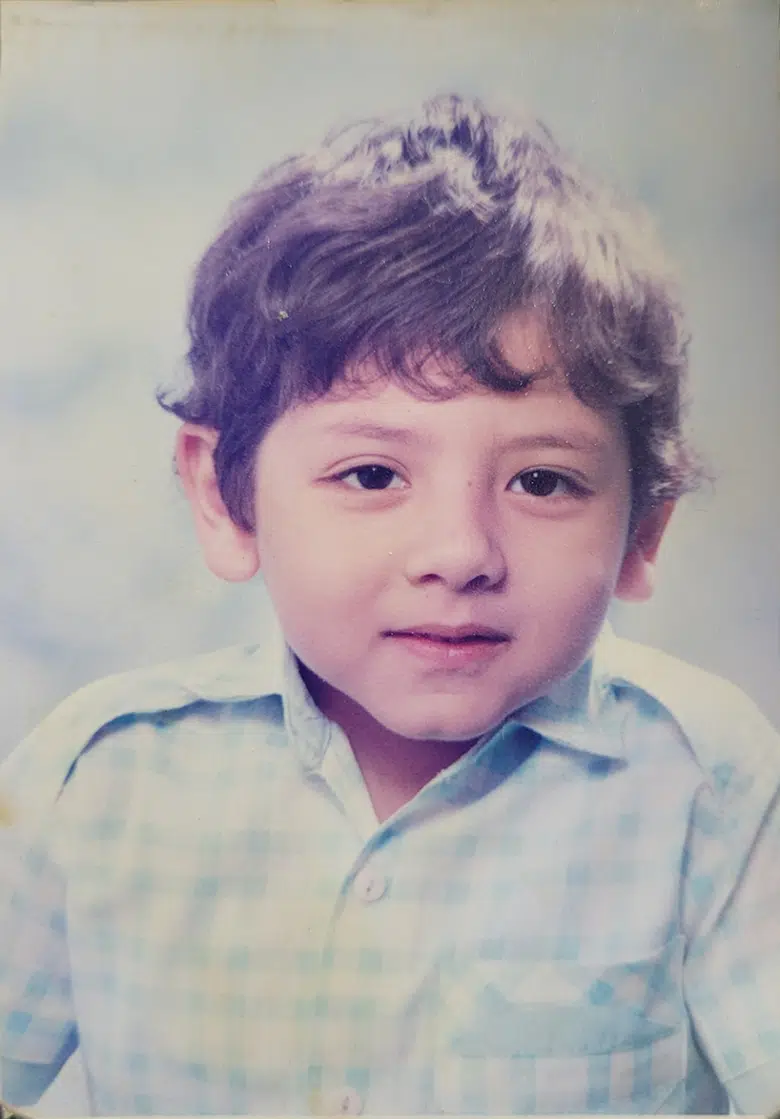
Omar El Akkad’s first school photo after moving away from Egypt to Qatar. The start of his life “as a guest on someone else’s land”. © Omar El-Akkad
Born in Egypt and raised in Qatar before immigrating with his parents to Canada, El Akkad uses his characters to explore the meaning of “home” throughout his writings.
“All the characters I write have a difficult relationship with home because I’m not one of those people who can point to a place in the world and say, ‘This is my home,’” explains El Akkad, adding he feels fortunate to have been able to move with his family when the political and economic situation deteriorated in Egypt in the late eighties. A lot of children, however, don’t have this choice.
Through What Strange Paradise, El Akkad hopes to make a difference in the way people perceive “the other.”
“The purpose of everything I write is to demolish the idea that there’s such a thing as the other, or a place far away,” he explains. “I take things happening to people who don’t have much voice in the world and put them in a context closer to home, in the hope that people will think deeply of other human beings.”
He also hopes to keep the conversation going around the plight of refugees and asylum seekers around the world.
“If I was to meet Amir, or any of the children he embodies, I would apologize for the world we have created,” he says, “a world where we allow such tragedies to happen, where children pay the highest price for what is meant to be basic justice and human rights.”
What Strange Paradise is the winner of the 2021 Giller Prize, a finalist for the Pacific Northwest Book Award and the Aspen Words Literary Prize, as well as chosen as best book of the year by the New York Times, the Washington Post, NPR, the Globe And Mail and others.



